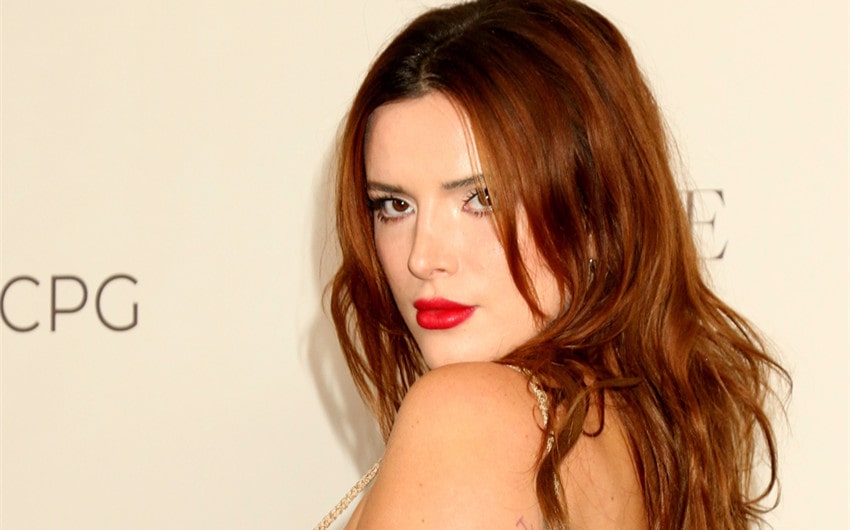Bella Thorne’s OnlyFans Controversy and What It Revealed About Celebrity Control Today
When Bella Thorne’s OnlyFans hit the headlines in 2020, it wasn’t just a story about a celebrity joining a subscription-based platform. It became a lightning rod for discussions around fame, money, digital disruption, and who truly holds power in online spaces. Bella’s move was bold, unexpected, and profitable—but it also sparked backlash that revealed the fragile relationship between creators, platforms, and the celebrities who dip in and out of those worlds with immense influence.
Her involvement with OnlyFans made global news because of the sheer numbers she brought in. But the deeper impact wasn’t financial—it was cultural. It forced fans, creators, and even Bella herself to reckon with what happens when celebrity presence clashes with creator ecosystems. And it made everyone ask: who gets to control the narrative when platforms meant for independence become a playground for the already-famous?
Who Is Bella Thorne? Actress, Artist, Rule-Breaker
Bella Thorne is no stranger to the spotlight—or to controversy. She first rose to fame as a Disney Channel star in Shake It Up, where her charm and style made her a teen icon. But Bella was never interested in staying within the safe confines of child stardom. As she matured, she pushed against the industry’s expectations, embracing edgier projects, provocative aesthetics, and entrepreneurial freedom.
She’s acted in independent films, directed an award-winning adult short, released music, published books, and built her brand around being bold and unpredictable. What defines Bella Thorne’s career isn’t just her versatility—it’s her refusal to let any one role define her. Whether she’s wearing couture on a red carpet or posting unfiltered rants on Instagram, she has consistently positioned herself as someone who writes her own script.
So when she joined OnlyFans, it seemed like just another curveball in a career shaped by disruption. But the impact would be more far-reaching than she—or the platform—expected.
The OnlyFans Move: What Happened and Why It Mattered
In August 2020, Bella Thorne launched an OnlyFans account and made $1 million within 24 hours—reportedly becoming the first creator on the platform to hit that milestone. That kind of financial spike was unprecedented, and it instantly turned her into the face of a platform that had, until then, been dominated by independent and often marginalized creators.
But it wasn’t just the money. Bella positioned the move as part of a research project for an upcoming film and framed it as a way to challenge stereotypes around sex work and content creation. In her own words, she said she wanted to normalize and destigmatize the experience. While that framing may have come from a place of good intent, the execution quickly came under fire.
Fans accused her of misleading marketing—particularly when it came to pay-per-view messages that reportedly promised nude content but delivered something more modest. More importantly, her arrival created a domino effect on the platform itself, prompting policy changes that directly impacted the earnings and flexibility of countless other creators.
More Than Clickbait: What Her Decision Symbolized
At its core, Bella Thorne’s OnlyFans debut wasn’t just about her—it symbolized a shift in how celebrity intersects with creator culture. OnlyFans had long been a place for sex workers and independent creators to reclaim agency, build income streams, and connect with their audiences without corporate gatekeepers. Bella, a millionaire actress, entering that space sent a clear message: celebrities now wanted a piece of that direct-to-fan economy too.
But the problem wasn’t just her participation. It was the framing. Bella approached the platform like a tourist—someone exploring and experimenting, not someone whose livelihood depended on it. Her move unintentionally suggested that creator spaces were trend experiments, not long-term ecosystems built by hard-working individuals with fewer resources and less safety net.
Fans felt betrayed. Creators felt displaced. And yet, her participation also highlighted how platforms like OnlyFans were gaining mainstream legitimacy—precisely because celebrities were validating them. The paradox was impossible to ignore.
The Fallout: Disruption, Policy Change, and Creator Impact
After the backlash, OnlyFans changed several key policies: limiting the maximum price of pay-per-view content and capping tipping amounts. They also introduced longer payment processing windows for some creators, a move many believe was a direct response to the financial ripple effects of Bella’s sudden surge on the platform.
These changes didn’t just inconvenience creators—they hurt them. For many, OnlyFans is a primary source of income, and the new policies made it harder to earn and plan financially. Creators voiced frustration, feeling as though Bella’s one-week experiment resulted in long-term consequences for people who use the platform for survival, not publicity.
The controversy underscored a vital point: when celebrities enter grassroots digital spaces without understanding the ecosystem, the consequences aren’t just PR backlash. They can destabilize livelihoods. Bella later apologized, stating that her intentions were misunderstood and that she never meant to harm other creators. But by then, the damage was done—and the conversation had shifted.
Beyond OnlyFans: Bella’s Bigger Narrative
The OnlyFans controversy was a dramatic moment in Bella Thorne’s career, but it wasn’t an anomaly. It fit perfectly into her broader narrative of testing boundaries, challenging norms, and reclaiming power—sometimes awkwardly, sometimes effectively.
From her early rebellion against the Disney mold to her ventures into adult entertainment and indie film, Bella has always positioned herself as a creative free agent. She wants control, she wants attention, and she’s willing to take risks to get both. That doesn’t make her a villain—but it does make her a fascinating case study in how modern fame works.
Bella’s strength lies in her ability to bounce back. The fallout from OnlyFans didn’t stop her career. If anything, it added a layer of complexity to her public persona. She forced conversations about platform ethics, digital equity, and the blurred lines between art, commerce, and social responsibility.
Fame, Power, and Digital Accountability
The phrase Bella Thorne OnlyFans will forever be linked to a moment when celebrity clashed with creator culture—and not entirely smoothly. It was a case study in influence without context, good intentions that led to unintended harm, and the complicated dynamics of sharing digital space.
In today’s creator economy, platforms are more than just tech—they’re ecosystems with real people behind every post, message, and subscription. When celebrities enter those spaces, they bring power—but also responsibility. Bella Thorne’s experience proved that even with the best branding, accountability matters. Transparency matters. Understanding the culture you enter matters.
Her story is a reminder that in the digital age, fame isn’t just about who’s watching—it’s about how you show up, who you impact, and what you choose to stand for when the spotlight fades.







